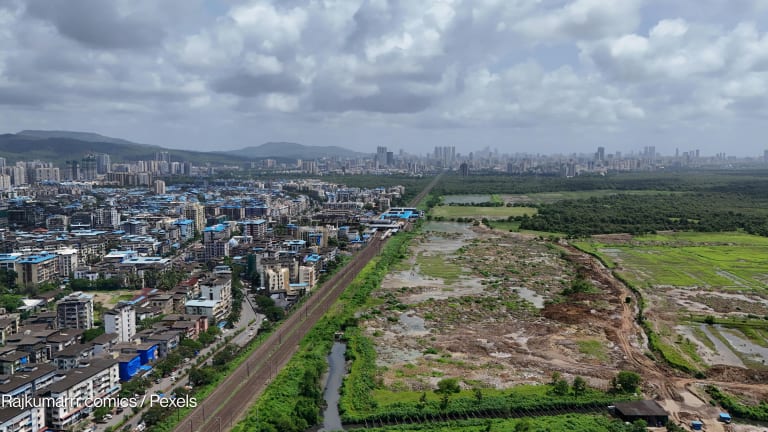
BONN, Germany — World Health Organization officials have announced a new initiative to address the health impacts of climate change on small island developing states. The global health body called for a tripling of international support for those nations' health systems and for more evidence on the link between climate change and health.
The initiative, launched over the weekend at the 23rd Conference of Parties, or COP23, is focused specifically on small islands whose health systems often have difficulty grappling with the impacts of major climate events.
That can be anything from drinking water that becomes contaminated during a hurricane or flood, to infectious diseases that spread among people who are displaced, to malnutrition caused by changing agricultural patterns. Between 2030 and 2050, the WHO predicts that climate change could be responsible for roughly 250,000 additional deaths per year.
WHO officials said only 1.5 percent of all funding for climate change adaptation goes toward shoring up the health response. And only a fraction of that money goes to small island developing states, despite their particular vulnerability.
"The level of investment at the moment is so low,” Dr. Diarmid Campbell-Lendrum, WHO's team leader on climate change and health, told Devex. “It's in the order of millions per year, when we should be talking in the order of tens of millions, if not more."
"We owe it to these people to do everything we can to help them prepare for a future that is already washing up on their shores," said WHO Director-General Dr. Tedros Adhanom Ghebreyesus during the launch of the initiative in Bonn, Germany.
In addition to increased funding and evidence, the four-part initiative calls for the amplification of the voices of health leaders from small island developing nations and the promotion of health policies to improve preparedness for catastrophic climate events.
The risks facing this group of countries are a special focus at COP23, which is being hosted by the small island developing state, Fiji. WHO officials said the strategies — and many of the solutions they are hoping to get funding to implement — come directly from the experience of those island nations.
“We in Fiji know all too well that climate change poses a serious threat to the health of our people.”
— Frank Bainimarama, Fijian prime minister and COP23 president"We in Fiji know all too well that climate change poses a serious threat to the health of our people," Fijian Prime Minister and COP23 President Frank Bainimarama said at the launch.
Campbell-Lendrum told Devex the initiative grew out of earlier conversations with health ministers from the Pacific and Caribbean. Those discussions were marked by the frustration the officials felt with the lack of financing and their eagerness to have their concerns about health fears amplified.
"It's been clear from the start that this initiative will respond to what they want, not what the United Nations tells them they want," he said.
The process will begin with designing country-level programs that draw on existing evidence and the lessons of individual initiatives that are already in place, including several that have been piloted by small island developing states.
“It's been clear from the start that this initiative will respond to what they want, not what the United Nations tells them they want.”
— Dr. Diarmid Campbell-Lendrum, WHO team leader on climate change and healthCampbell-Lendrum pointed to efforts such as a smart hospitals approach, which looks to build facilities that can withstand climate events, while also not contributing to climate change. That means constructing them around renewable energy sources, especially solar power.
WHO can assist with capacity building and technical support to facilitate these efforts. It can also help build up evidence and take other steps to strengthen requests for funding.
"There are a certain amount of things that countries can do at no or low cost," Campbell-Lendrum said. "But many of these countries are definitely going to need additional financial support. We will be working with them to try to facilitate access to international climate financing streams."
He said there was a particular push from small island developing states for WHO to become accredited to the Green Climate Fund, which supports the efforts of developing countries to respond to climate change.
Within WHO, Campbell-Lendrum said there is significant momentum behind the initiative. "It is being proposed as one of the indicators of WHO's success over the next five years."
Read more Devex coverage on the COP23 and sign up for our daily briefings.
Read more Devex coverage on COP23:
▶ Q&A: How climate risk insurance can work for developing countries
▶ 'Alternative' US delegation to COP23 tries to reassure climate partners
▶ Opinion: To tackle climate change, we need to invest in smallholder farmers
▶ Can Fiji deliver a developing countries' climate conference?








